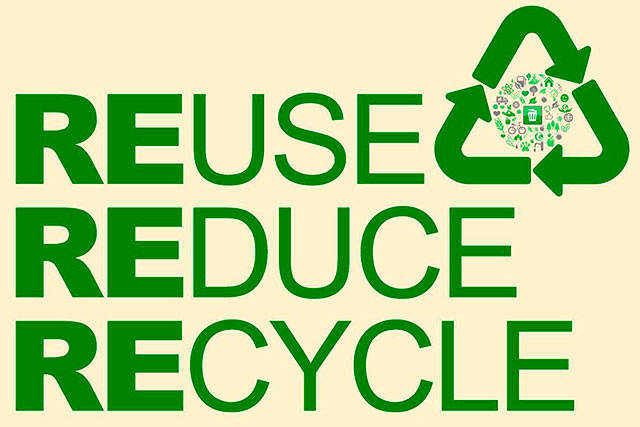The following was written by King County’s Green Team:
The new school year starts soon, and both students and parents can use these next few weeks to practice green habits as they prepare to return to the classroom.
Since according to research, our brains can most easily remember seven pieces of information at a time, here are seven practices for a more sustainable planet to start out your school year:
1. Rethink
Consider what you really need for the new school year. Do you really need a new backpack or binder this year? Are the products you plan to buy durable enough to make it through the year or longer?
2. Reduce
Reduce waste created from lunches by replacing plastic bags and foil with cloth bags and durable containers. Plan meals at the beginning of each week. When you buy and cook in bulk, you can save money, packaging, and food waste.
3. Reuse
Give new life to partially used supplies left over from past school years. Check your recycling bin for materials that could be used further before recycling them. If your clothing from last year is worn out, Threadcycle it by donating it to a local thrift store. Shop for clothes first at thrift stores before buying them new. Remember, these used items will be new to you!
4. Recycle
For items you do need to buy, look for recycled products. For example, paper and pencils certified by the Forest Stewardship Council ensure that wood products come from responsibly managed forests. Remember that for recycling to work, customers need to buy products with recycled content.
5. Make your commute to school low-impact
Plan ahead to commute via carpool, bus, bicycle, or on foot if possible. For safety, bike or walk with local buddies. King County has great resources for finding carpools and buses near you. Ask your school if it provides carpooling resources.
6. Join your local Buy Nothing group
Buy Nothing groups were created a few years ago on Bainbridge Island as a way for neighbors to give, share, and ask for items rather than buy and sell them. They have been so successful they’ve spread not just across the country but the world. They create community with neighbors, help save money, and reduce waste. If you have specific back-to-school needs, check your local Buy Nothing group. Note that membership in these groups is limited to adults.
7. Spread the word to your community
Through social media, school newsletters, and neighborhood gatherings with friends, share this post to start the conversation about your back-to-school waste prevention plans.


